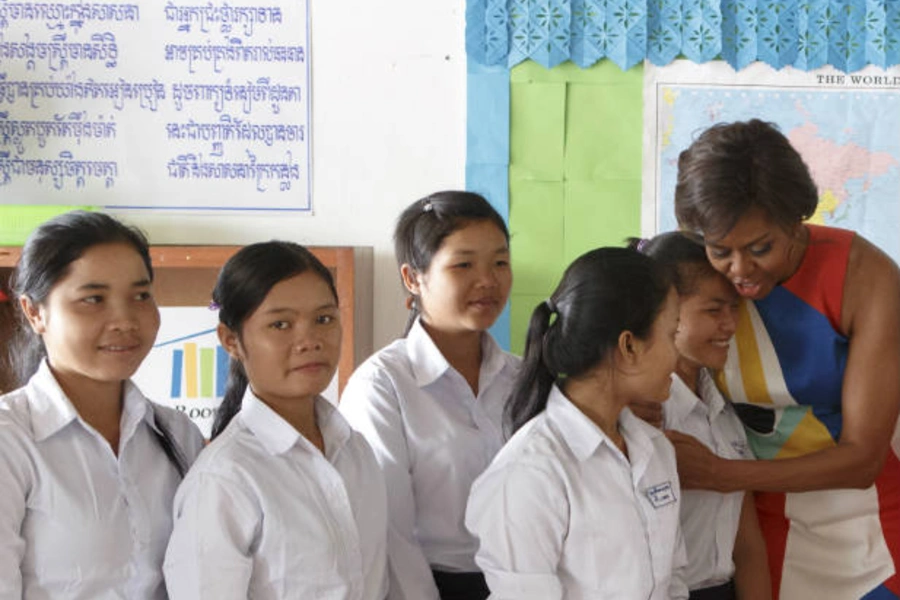Women Around the World: This Week

More on:
Welcome to “Women Around the World: This Week,” a series that highlights noteworthy news related to women and U.S. foreign policy. This week’s post, covering March 25 to April 1, was compiled with support from Anne Connell and Alexandra Eterno.
New U.S. government efforts to empower women and girls This month, U.S. Secretary of State John Kerry announced the historic launch of the first-ever U.S. Global Strategy to Empower Adolescent Girls. The new strategy is the product of an interagency effort led by the Department of State in collaboration with USAID, PEPFAR, the Peace Corps, and the Millennium Challenge Corporation. The innovative strategy highlights the importance of investing in efforts to empower adolescent girls worldwide, focusing on critical issues like improving access to secondary school, collecting gender-disaggregated data, reducing HIV infection rates among young women, and bringing an end to harmful traditional practices such as child marriage and female genital mutilation (FGM). The State Department also took steps this month to honor exceptional leaders in the cause to advance gender equality and social progress, recognizing fourteen women at its 10th Annual International Women of Courage Awards. Recipients include Debra Baptist-Estrada, an official in Belize’s Department of Immigration fighting human smuggling; Latifa Ibn Ziaten, a Moroccan-born Frenchwoman combatting radicalization in Muslim French communities; Dr. Nagham Nawzat Hasan, a Yezidi gynecologist providing psychological support to survivors of sexual violence; and Russian journalist Zhanna Nemtsova, who champions freedom of information.
Women in Colombia’s peace process Colombia’s government and the Revolutionary Armed Forces of Colombia (FARC), a radical left-wing group violently opposing the government since the 1960s, missed the March 23rd deadline for a peace agreement that was set at a celebrated joint meeting last September. Throughout the conflict and tenuous peace process, women have played a prominent role: in bilateral talks last year in Havana, Cuba, for example, sixteen women participated as gender experts. And with women comprising an estimated forty percent of the rebel fighters, women’s inclusion at the negotiating table is critical to the creation of a durable peace that reflects the unique post-conflict needs of women, including female fighters and those affected by violence across the country. As peace talks continue in 2016, their incorporation of the complexity and diversity of women’s experiences during the conflict—both as perpetrators and victims of violence—will be critical.
Reducing child marriage in Bangladesh Promising new research from the Population Council demonstrates that targeted programs in Bangladesh that educate girls, provide information about legal rights, and offer livelihood skills training hold the potential to reduce the practice of child marriage by up to one third. Bangladesh has one of the highest rates of child marriage in the world, with sixty-five percent of girls married before their eighteenth birthdays and twenty-nine percent of girls married before the age of fifteen. With widely-publicized inaction from the government and poor implementation of current legislation that bans the practice, families in Bangladesh continue to perpetuate the practice of child marriage, which is fueled in part by extreme poverty. This new research should inform the design of programs aimed at reducing child marriage in Bangladesh—and could provide a model to be scaled in other countries throughout South East Asia.
More on:
 Online Store
Online Store
